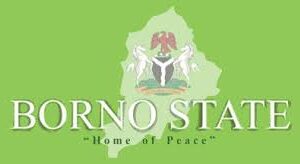Local government workers in Kogi state have continued to grapple with the persistent issue of unpaid salary percentages. The prolonged wage dispute has left these essential workers in dire financial straits and raises concerns about the state’s fiscal management.
For years, local government employees in Kogi state have endured the ordeal of receiving only a fraction of their salaries. This dire situation is rooted in the state’s ongoing financial woes and budgetary constraints. While the government has stated its commitment to address the problem, local government workers are growing increasingly frustrated by the lack of resolution.
The problem stems from the state’s inability to provide its local governments with the required funds to meet their salary obligations in full. As a result, workers in tier often receive only a portion of their salaries, which has been labeled as “percentage payments.” Many have grown accustomed to receiving as little as 30% to 50% of their monthly earnings, which can barely cover their basic needs.
Local government workers play a vital role in providing essential services, such as healthcare, education, and infrastructure development, at the grassroots level. The salary issue not only affects their livelihoods but also has significant implications for service delivery in Kogi state.
Local government workers have repeatedly called on the state government to address this issue, citing their constitutional rights to timely and full salary payments. Despite numerous assurances from government officials that efforts are being made to rectify the situation, a lasting solution has yet to be found.
The consequences of the unending percentage payments are evident in the lives of local government workers. Many struggle to make ends meet, provide for their families, and maintain their standard of living. This situation has also led to brain drain, as some employees seek better opportunities in other states with more stable financial systems.
The state government should ensure the accurate and prompt release of the funds due to each local government from the monthly revenue from the Federation Account Allocation Committee (FAAC) which are being received through the State-Local Government Joint Account; an account which the governor wields absolute influence on.
The state government should also stop interfering in the election of the executive and legislative arms of local governments. The people should be left to elect their democratic representatives. This will enhance the performance and accountability of the elected representatives at the local level which will go a long way in solving the issue of percentage salary as the elected representatives will only be answerable to the people of the local government areas and not the state government.
Kogi state government must take immediate and effective measures to resolve this long-standing problem. Addressing the financial issues that have plagued the state and local governments will be crucial to ensure that local government workers receive their full salaries promptly. The state government should consider financial reforms, better budget management, and an enhanced revenue generation strategy to guarantee regular salary payments to its employees.
In conclusion, the unending percentage payments of salaries for local government workers in Kogi state are a grave concern that requires urgent attention. The state government must prioritise the financial stability of its local governments and ensure that its workers are paid promptly and in full. Only through concerted efforts can this issue be resolved and the lives of these essential workers be improved.
Victory Boluwatife Mayomi,
Department of Mass Communication,
University of Maiduguri, Borno state




